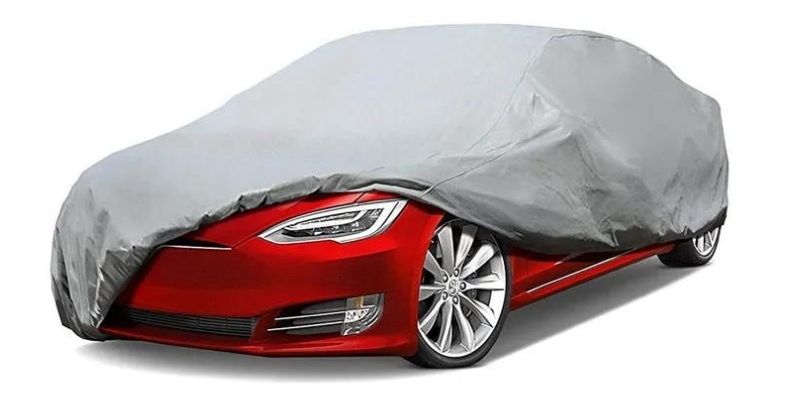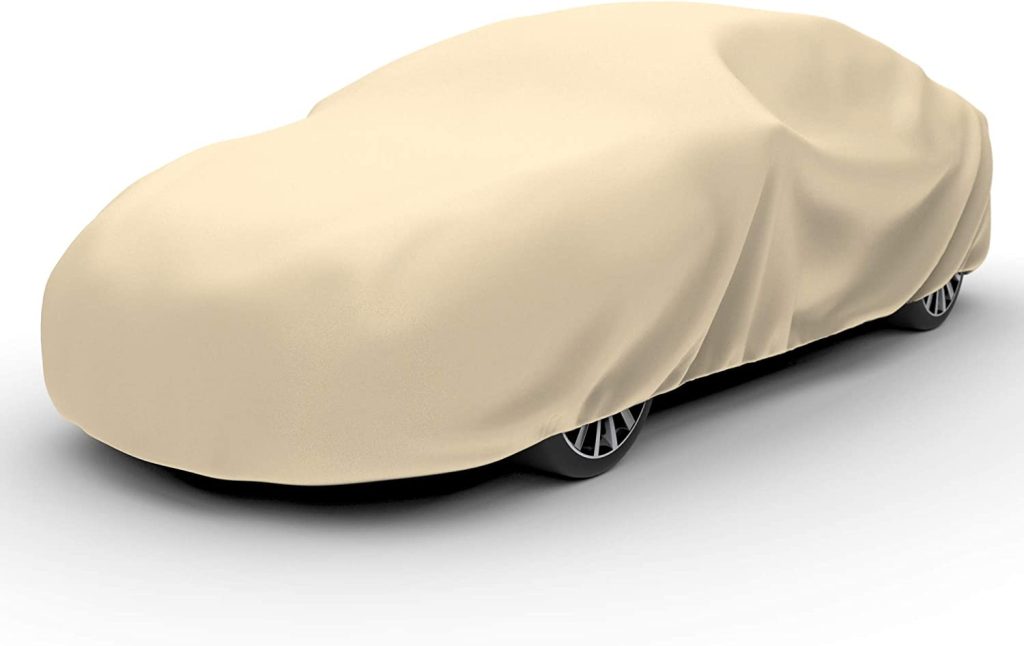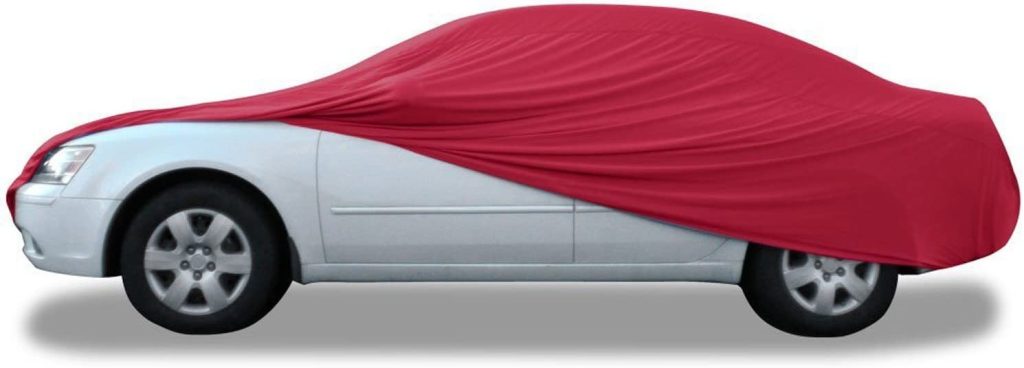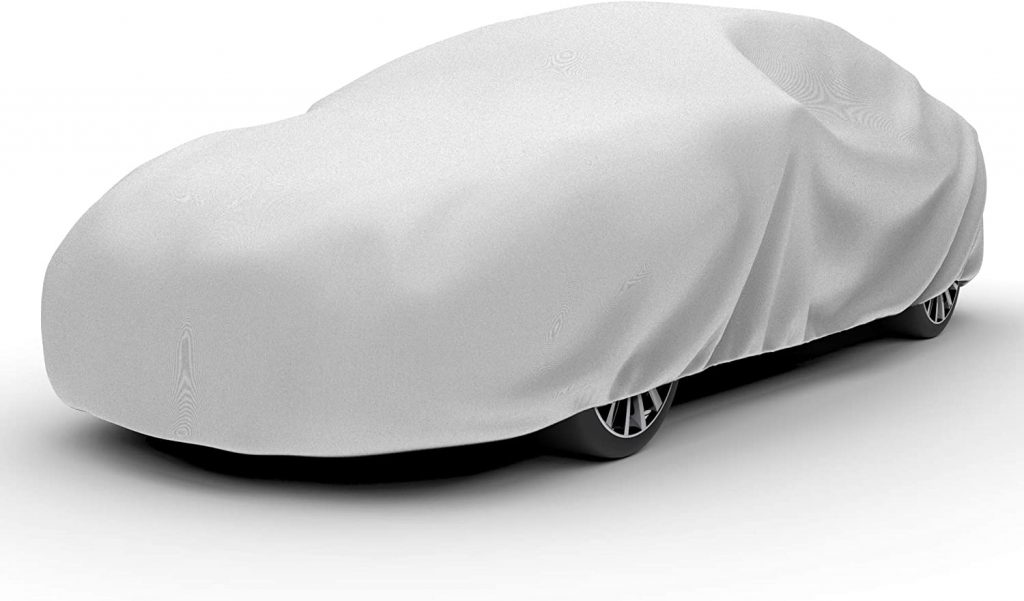A car is one of the most expensive investments that you can make, so you should take good care of it. As a car owner, protecting your vehicle from the various elements is crucial to ensure it stays in good condition for years to come. One of the best ways to safeguard your car is by using a car cover. However, not all car covers are created equal, and choosing the wrong material can cause more harm than good.
Car covers provide a lot of protection for your vehicle against extreme weather and other debris. They can prevent ice and snow from accumulating on the car during winter and prevent mud from sticking to the car during springtime or any time outside.
In this article, we will discuss the best material for car cover, taking into consideration various factors such as climate, storage location, and vehicle usage frequency. By reading this article, you will gain a better understanding of which car cover material is the best fit for your needs, helping you to protect your car and keep it in optimal condition for years to come.
WHICH FABRIC IS BEST FOR CAR COVER?
When choosing a car cover material, several factors need to be taken into account. The climate and weather conditions in your area, storage location, vehicle usage frequency, and material durability are all essential considerations. The right car cover material will protect your car from rain, snow, UV rays, and other harsh weather conditions. It will also help prevent scratches, dents, and other damages.
Polyester
Polyester is a popular material for car covers due to its excellent durability and resistance to wear and tear. It is also lightweight and breathable, making it suitable for all weather conditions. Polyester car covers are available in various styles, from basic to high-end, and they can fit almost any budget.
Polypropylene
Polypropylene is another common material used in car covers. It is lightweight, durable, and affordable, making it ideal for budget-conscious car owners. This material car cover does not scratch the car body and keeps your car dust free. Polypropylene is also resistant to UV rays and mildew, making it an excellent option for outdoor storage.
Cotton
Cotton is a breathable material that is commonly used in indoor car covers. It is soft and gentle on your car’s surface, making it an excellent option for preventing scratches and other damages. However, cotton is not waterproof, and it can retain moisture, leading to mildew and mold growth.
Vinyl
Vinyl car covers are known for their waterproof properties, making them an ideal option for rainy and humid climates. They are also durable and can withstand harsh weather conditions. However, vinyl is a heavier material than polyester and polypropylene, making it less breathable and harder to handle.
Flannel
Flannel car covers are known for their softness and luxurious feel. They are an excellent option for indoor storage and offer protection against dust, dirt, and other debris. However, flannel is not waterproof, and it is not recommended for outdoor use.
Microfiber
Microfiber car covers are a high-end option that offers superior protection against the elements. They are durable, lightweight, and breathable, making them ideal for all weather conditions. Microfiber car covers also offer excellent UV protection, preventing your car’s paint from fading over time.
When caring for your car cover, it’s essential to follow the manufacturer’s instructions. Polyester, polypropylene, and vinyl car covers can be cleaned with mild soap and water, while cotton and flannel car covers require gentle washing to avoid shrinking or damage. Microfiber car covers should be hand washed or cleaned with a microfiber-specific cleaner.
Poly-Cotton
Poly-cotton is a great fabric for those who live in humid or very warm climates. The absorbent material and moisture will not be trapped behind your car cover. The fabric is also quite durable and may be used for various reasons besides car covers.
Poly-Microfiber
Poly-microfiber is made from a very thin fabric that provides excellent moisture protection. This type of material is the most expensive option and best for car cover, but it will be able to protect the car in all weather conditions without tearing or becoming damaged in any way. It is also the most delicate material when it comes to cleaning.
Woven Polyester
Woven polyester is the best material for outdoor car cover with a polyurethane coating that diverts rain from your car. Featuring double-stitched seams, this cover material is durable and waterproof. It also protects your vehicle against bird droppings, rainwater, and sun heat damage.
The UV-reflective silver material protects your car from sun damage and helps regulate its interior temperature, keeping it cool. For cars that are outside year-round, this cover is the best material available in the market.
Spunbond Composite Fabrics
Spunbonded composites are usually the most effective materials for a car cover. The fabric is made from polyester and polypropylene, making it both soft and lightweight. It also provides great moisture protection. Machines can use this type of fabric to create anything from clothing to containers. Most car covers produced by companies are usually made from spun bonded composite fabrics.
Non-woven Fabrics
Non-woven fabrics are made from a variety of materials. The most common type of non-woven is polyester non-woven. These materials are usually the lightest and thinnest of all fabrics, making them very durable. They’re also simple to clean and maintain.
Wool Car Cover
Wool is a durable material that will not fade or wear out over time. It is also a very resilient material, which means it will be able to protect your car from any elements that you want to protect it from, even if it is not wintertime. Wool car covers will also keep your car safe from bugs and other pests, so they are worth considering while purchasing a car cover.
Disadvantages of poor material
If you choose a car cover of poor material, it may not provide adequate protection against rain, snow, UV rays, and other harsh weather conditions. This can lead to damage to your car’s exterior, resulting in costly repairs or diminished resale value. A low-quality car cover may not fit your vehicle properly, causing it to slide off or become loose, leaving your car unprotected.
Top Features to Look For in a Car Cover
Some of the main features to look for when shopping for the best car covers:
- Cable locks and clips
- Elastic hem
- Waterproof material
- Reinforced grommets to secure the cover
- Anchoring straps
- Breathable fabric
Conclusion
Having a good understanding of the quality of the materials is most important because when you go for a car cover you know what is the Best Material for car cover. It can help you protect your vehicle from the elements all year long. Keep your vehicle in great shape by having a good quality car cover to protect it from harsh weather conditions.
If you can spend a lot of investment on a car then you should buy the best material car cover too for the long life of the vehicle. The information provided above will guide you in selecting the appropriate car cover material for your needs. It will guide you in distinguishing your requirements from those of other car buyers looking for car covers.
FAQ (Best material for car cover)
Which material is good for car covers in the USA?
In the USA, if you will park your car outside, you should use the best quality outdoor car cover which could protect your vehicle from rainwater, hail, and other weather elements. On the other hand, if you park your car in a garage, you can use an indoor car cover that suits your need. The garage car cover will protect your car from dust.
What is the difference between polyester, polypropylene, and nylon?
Polyester is durable and resistant to UV rays, while polypropylene is lightweight and breathable, and nylon is strong and tear-resistant.
Is cotton a good material for a car cover?
Cotton is not the best material for a car cover as it is not water-resistant and can hold moisture, which can cause damage to your car.
What is the benefit of using a waterproof car cover?
A waterproof car cover will protect your car from rain, snow, and other moisture that can damage the exterior of your vehicle.
Can a car cover made of synthetic material scratch my car’s paint?
A car cover made of high-quality synthetic material should not scratch your car’s paint, but it’s important to make sure the material is soft and non-abrasive.
What is the benefit of using a breathable car cover?
A breathable car cover allows air to circulate around your car, which can prevent moisture buildup and keep your car’s paint in good condition.
Can a car cover made of thin material protect my car from the sun?
No, a car cover made of thin material may not provide adequate protection from the sun’s UV rays, which can cause damage to your car’s paint and interior.
What is the difference between a woven and a non-woven car cover?
A woven car cover is made of threads woven together, while a non-woven car cover is made of fibers bonded together. Woven covers are usually more durable, while non-woven covers are lightweight and breathable.
How important is it to choose the right material for my car cover?
Choosing the right material for your car cover is essential as it can help protect your car from damage caused by weather, dust, and other outdoor elements.



